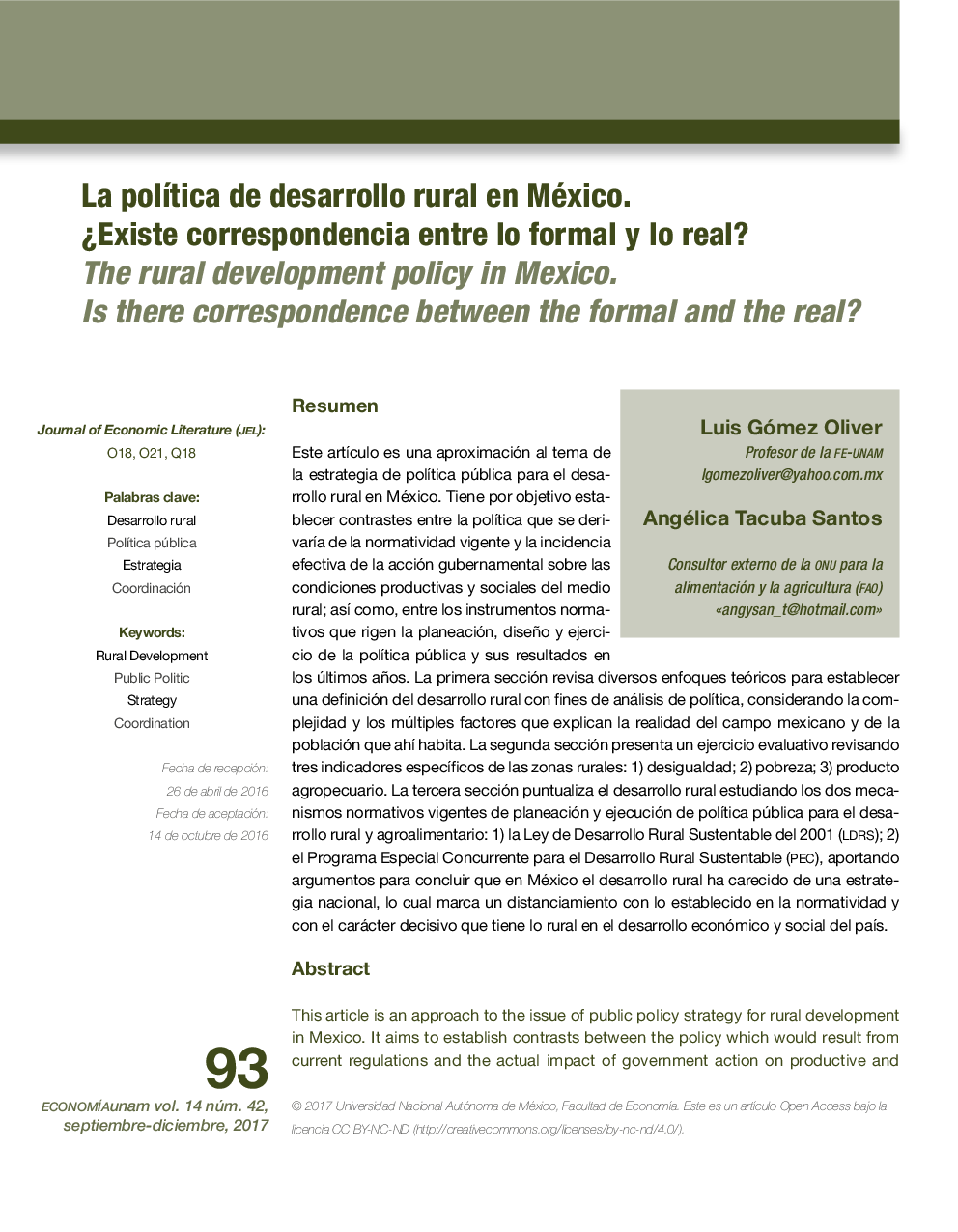| Article ID | Journal | Published Year | Pages | File Type |
|---|---|---|---|---|
| 7345781 | Economía UNAM | 2017 | 25 Pages |
Abstract
This article is an approach to the issue of public policy strategy for rural development in Mexico. It aims to establish contrasts between the policy which would result from current regulations and the actual impact of government action on productive and social conditions in rural areas; and between regulatory instruments governing the planning, design and practice of public policy and its results in recent years. The first section reviews various theoretical approaches to establish a definition of rural development for policy analysis, considering the complexity and the many factors that explain the reality of the Mexican countryside and the population that lives there. The second section presents an evaluation exercise reviewing three specific indicators in rural areas: 1) inequality; 2) poverty; 3) agricultural product. The third section points out the rural development considering the two existing regulatory mechanisms of planning and execution of public policy for rural and agricultural development: 1) Rural Sustainable Development Act of 2001 (rsda); 2) the Special Concurrent Program for Sustainable Rural Development (scp), providing arguments to conclude that rural development in Mexico has lacked a national strategy, which marks a rift with the provisions of the regulations and the decisiveness that has rural economic and social development.
Related Topics
Social Sciences and Humanities
Economics, Econometrics and Finance
Economics and Econometrics
Authors
Luis Gómez Oliver, Angélica Tacuba Santos,
